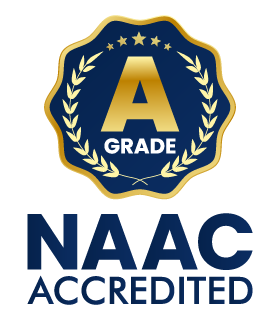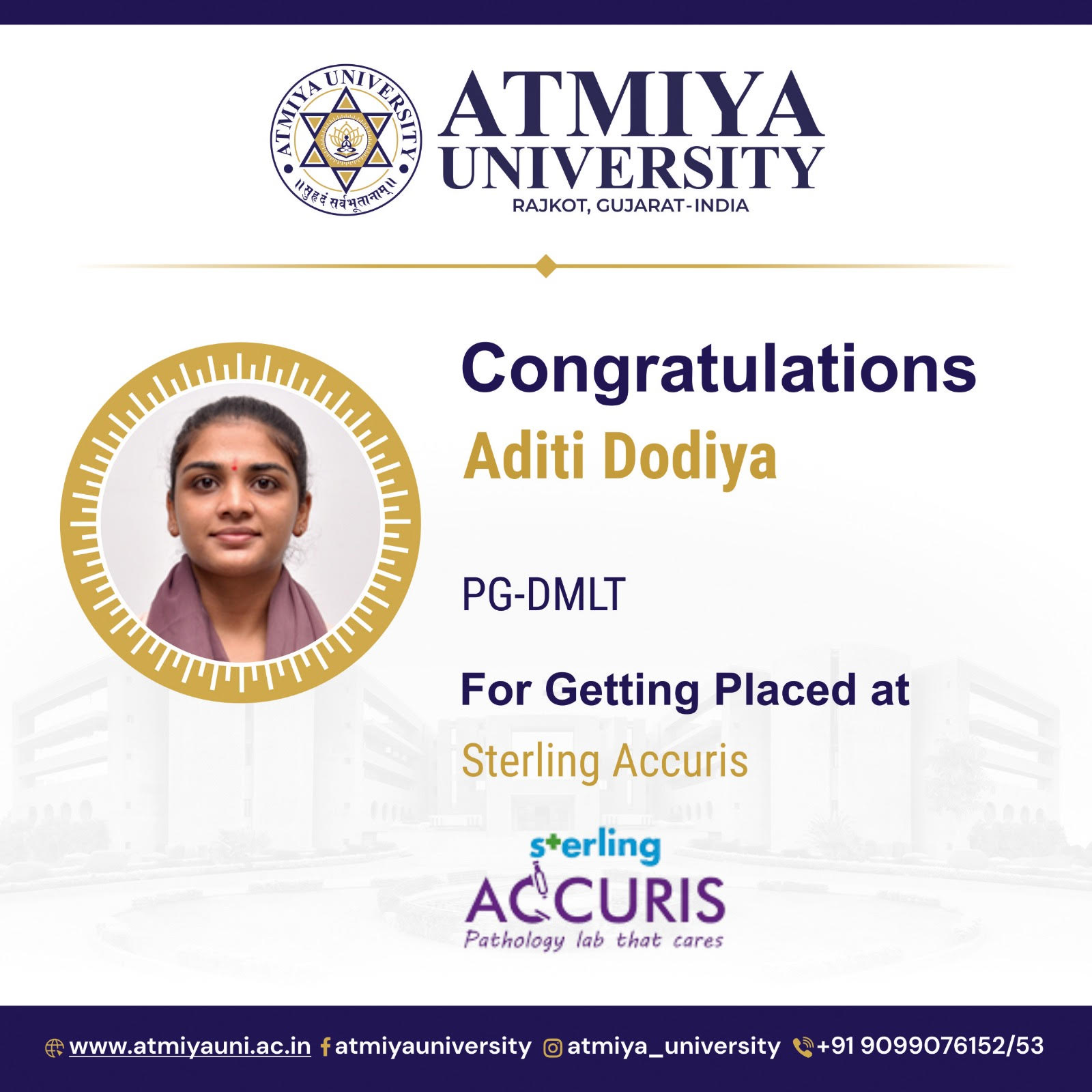About Department
Vision & Mission
Objectives
The curriculum is designed to provide hands-on experience through laboratory work, research projects, and internships to ensure our graduates are well-equipped for the workforce. Additionally, we offer opportunities for students to collaborate with industry professionals and engage in cutting-edge research to stay current with advancements in the field.
Graduate Attributes
-
Core Competence: Possess discipline-relevant knowledge and competencies and able to link them to local, national and global issues to seek positive and sustainable solutions
-
Transferable global & impactful societal skills: Ability to create knowledge through research and innovations by social immersions and transferring them to impact through problem solving at local and global levels
-
Sense of purpose & curiosity: Possess intellectual curiosity to apply the knowledge to generate, develop and realize new ideas
-
Ethics & lifelong immersive learning: Adhered to highest standards of ethics and always amenable to new ideas and actively seek out new ways of learning
-
Global Citizenship:Mutual understanding with others from diverse cultures, perspectives and backgrounds
Program Educational Outcomes
PEO1 Depth and Breadth of Knowledge: A deep understanding of their field and a broad perspective, integrating knowledge from diverse areas to creatively and ethically tackle complex problems.
PEO2 Practice, Operation and Usage of Modern Tools and Technology: Will equips graduates with the skills to apply and utilize modern tools and technologies in their field of study.
PEO3 Research, Numeracy and Scholarship: will demonstrate professional excellence, continuously enhance their skills and knowledge, adapt to evolving professional demands, embrace innovation and creativity, uphold ethical and professional integrity.
PEO4 Professional Capacity and Passion of Learning: will demonstrate professional excellence, continuously enhance their skills and knowledge, adapt to evolving professional demands, embrace innovation and creativity, uphold ethical and professional integrity.
PEO5 Global, Moral and Aesthetic Sustainability: will possess a comprehensive understanding of global systems, ethical standards, aesthetic values, adaptability, leadership, and communication skills, contributing to society's advancement and environmental preservation.
Program Outcomes
-
Domain knowledge: In depth understanding of basic and applied aspects of microbiology.
-
Problem analysis: Capability to contribute acquired knowledge leading to find a suitable solution for an existing problem.
-
Conduct investigations of complex problems: Acquire skills specific to microbiology and allied fields for converting information to knowledge through hypothesis, design, execution and analysis.
-
Modern tool usage: Familiarized with latest and advanced tools and techniques of biological sciences.
-
Environment and sustainability: Understand microbiology as a social endeavor in context to bringing about harmony with nature.
-
Ethics: Uphold the responsibility as a global citizen maintaining professional and ethical values.
-
Individual and team work: Capacity to develop, employ and integrate technical and professional skills as a member of team with holding the essence of collaboration, cooperation and integrity.
-
Effective communication: Communicate effectively by oral, written and graphical means along with digital and information literacy.
-
Self-directed and Life-long Learning: Ability to upgrade knowledge independently and act upon means of improvement for lifelong learning.
Program Specific Outcomes
After completion of the programme the Post graduate will:
PSO1: Be able to identify major microbial groups and will be able to classify them.
PSO2: Able to pursue higher education and research in the institutes of national and international repute.
PSO3: Able to understand and demonstrate the role of major microbes in various sectors like agriculture, medical and pharmaceutical sector.
PSO4: Apply knowledge of functional & fundamental microbiology to understand and predict interactions of microbes within ecosystem and within them.
Faculty profile
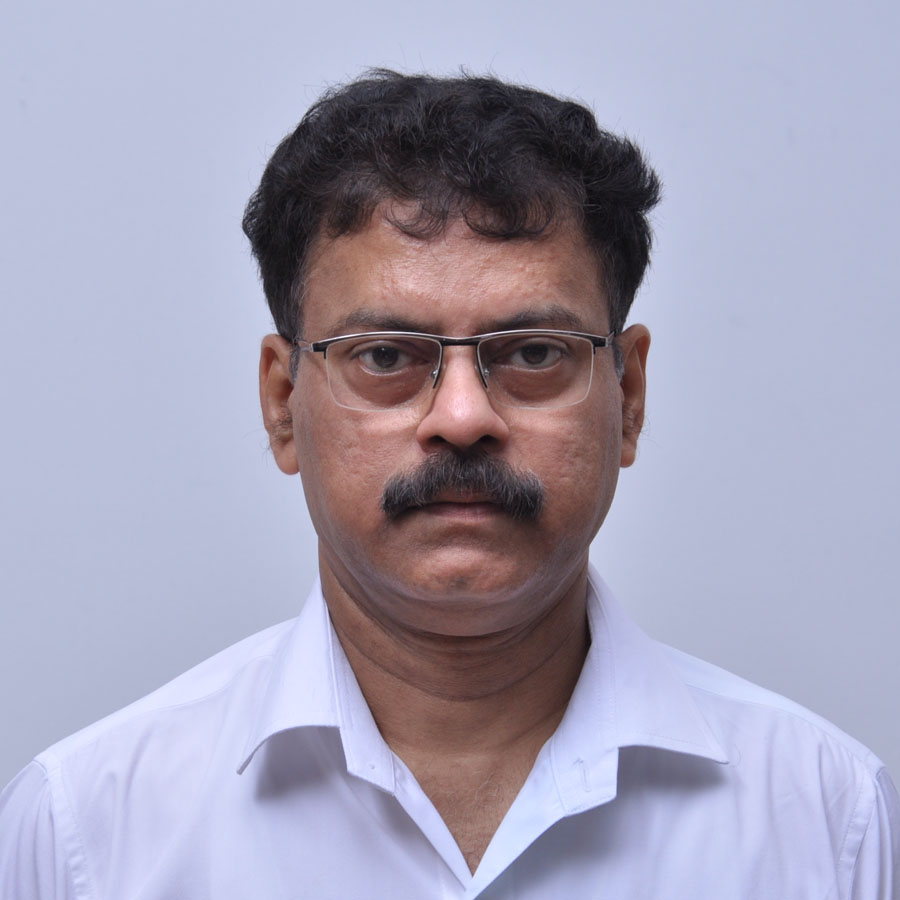

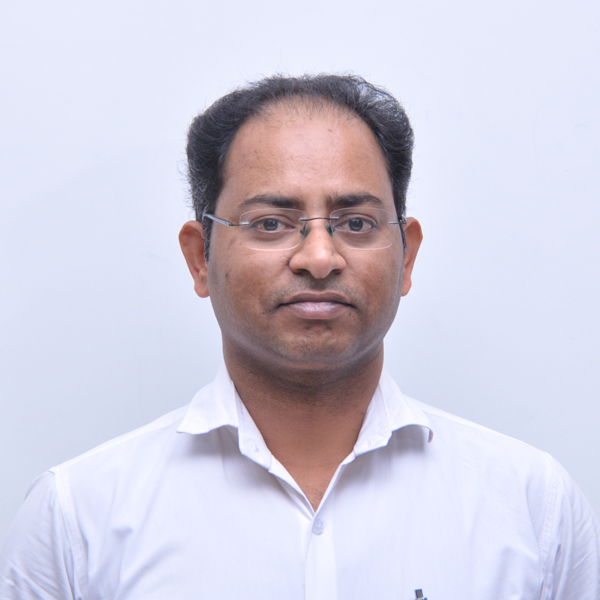
Nutan Prakash Vishwakarma
Associate Professor
M.Sc., M.Phil., Ph.D.
Exp:17
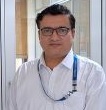
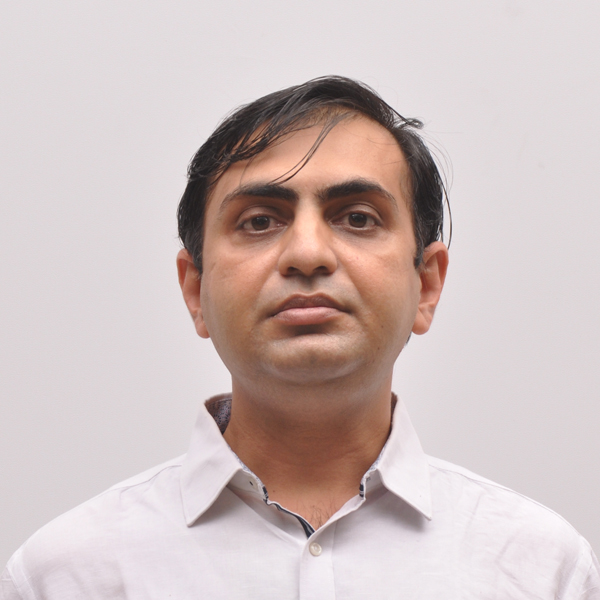
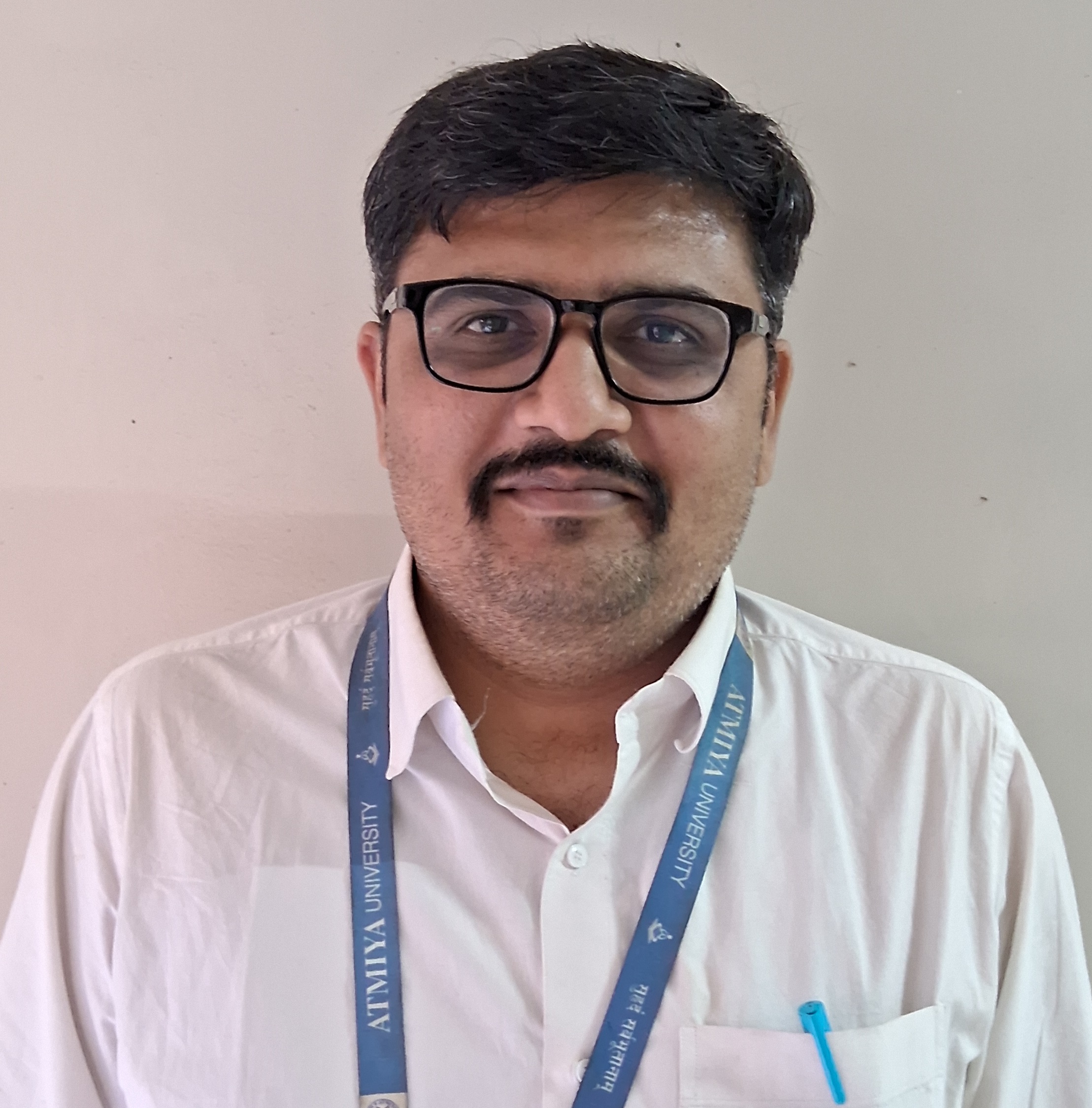
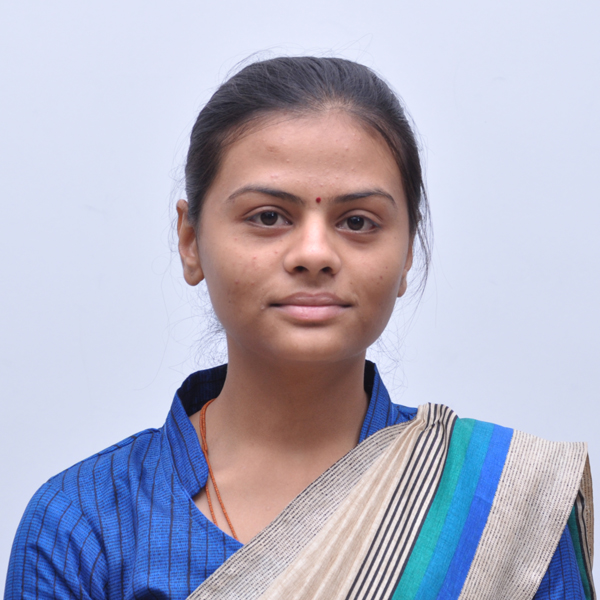
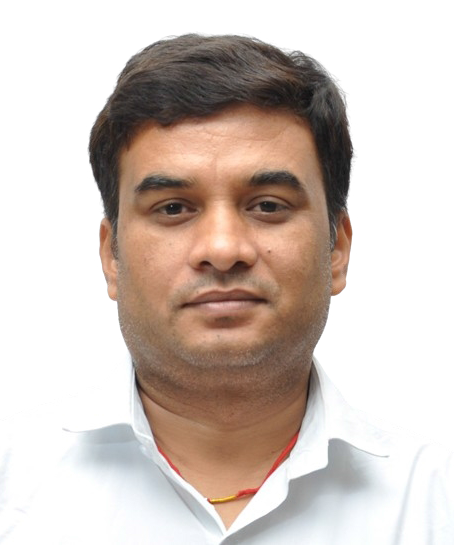
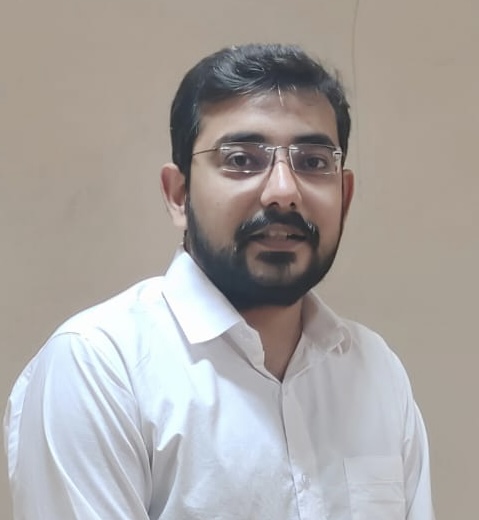
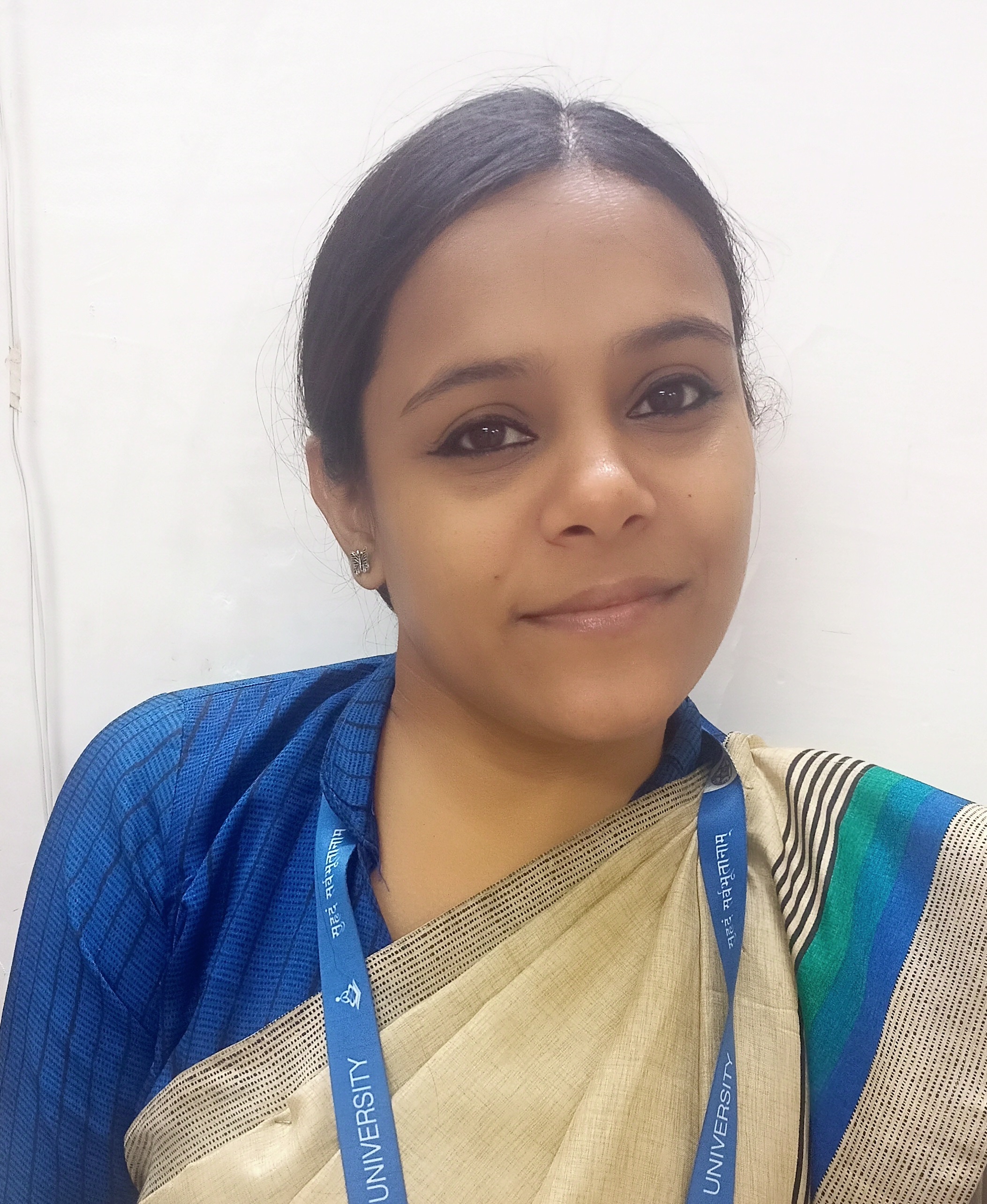
Chitra Bishnu Bhattacharya
Assistant Professor
M.Sc., M.Phil., Ph.D.
Exp:13
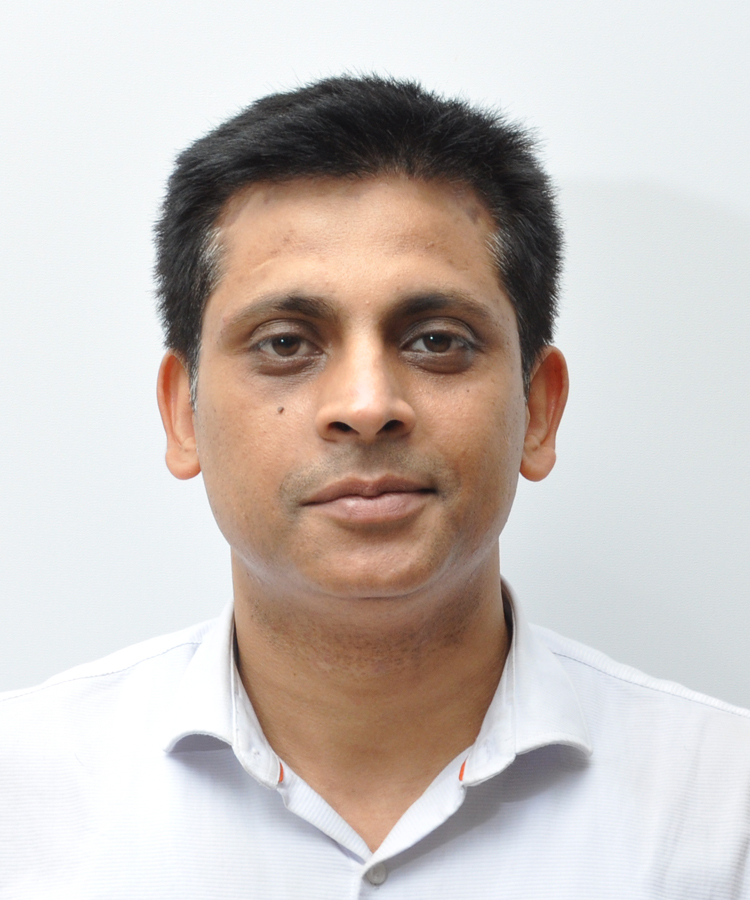
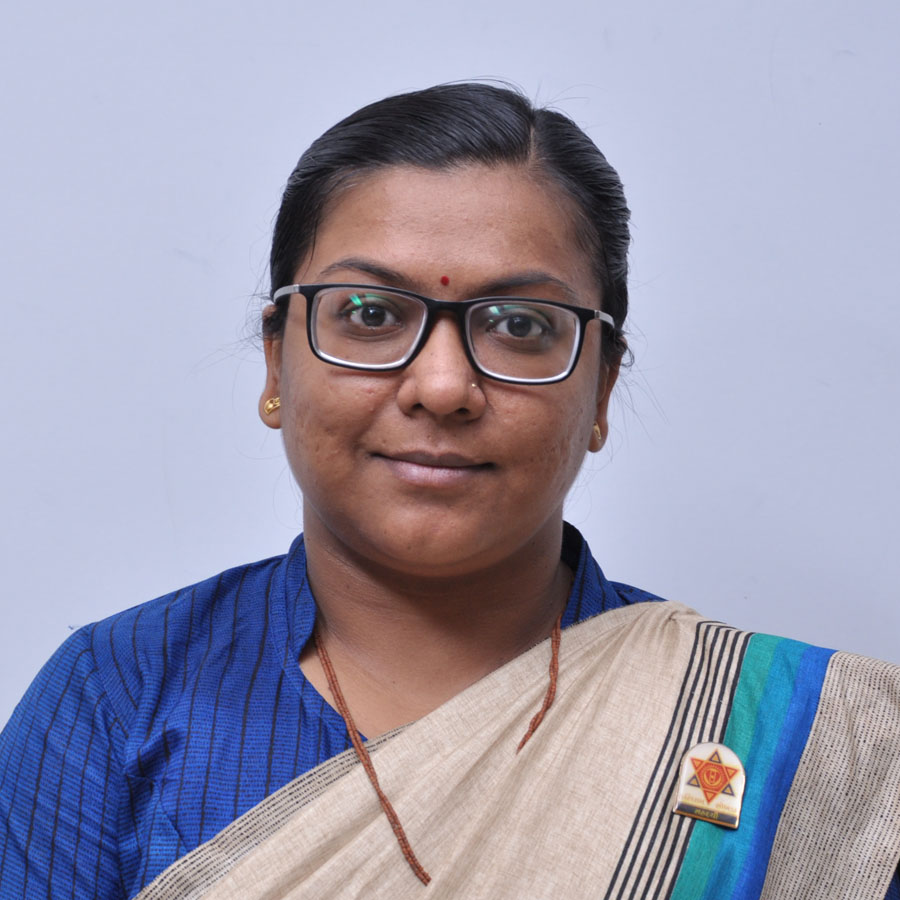

.jpg)
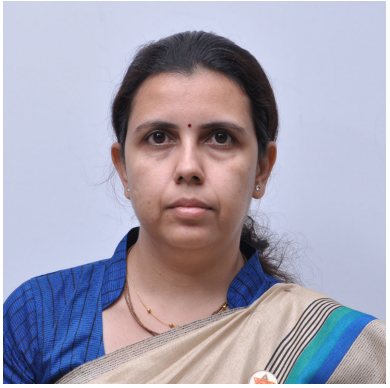

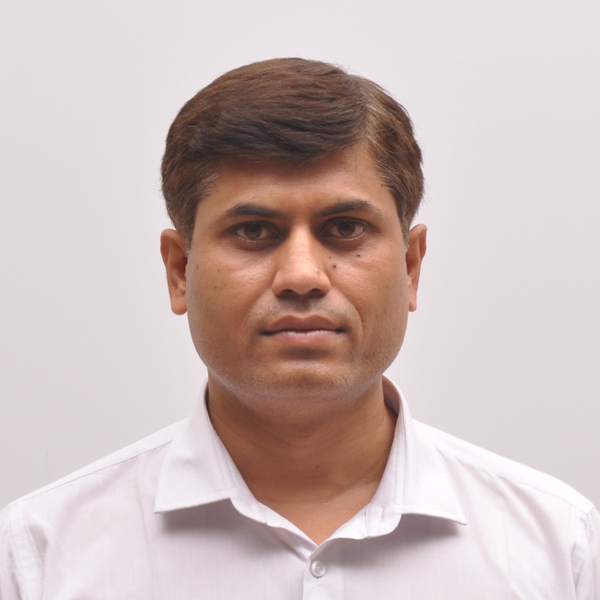
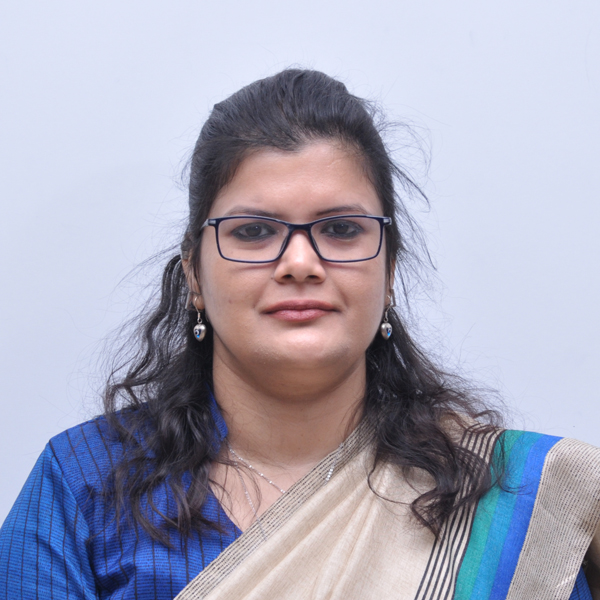
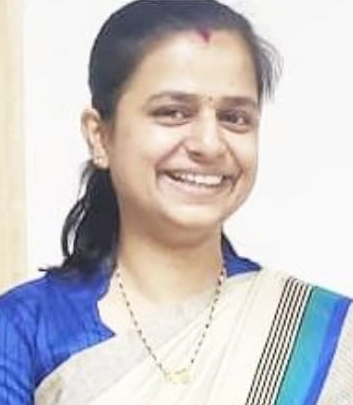
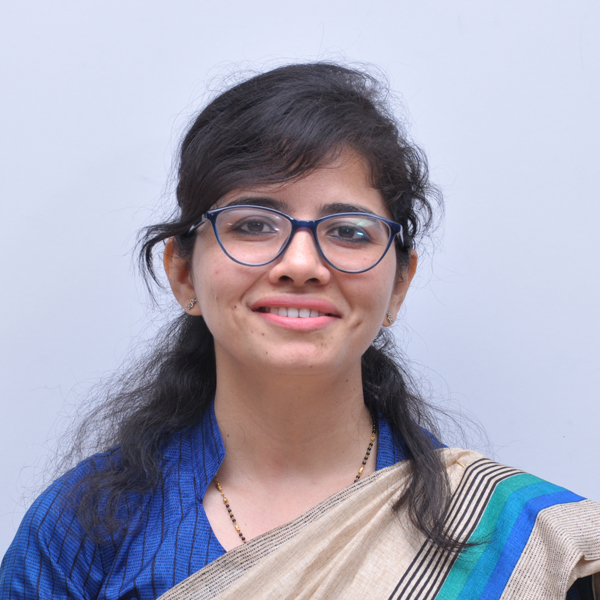
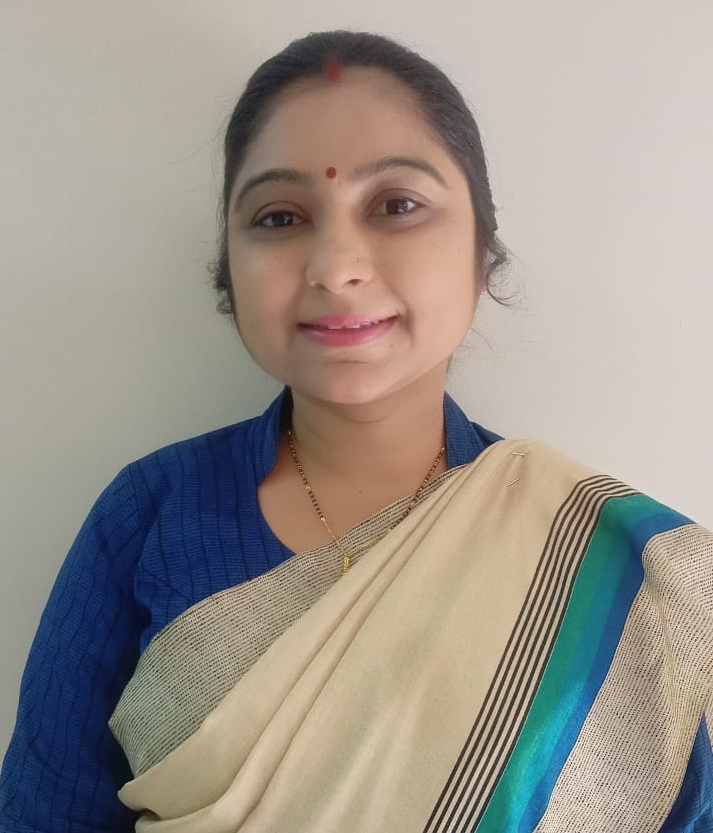
Vaishali Rambhai Majithiya
Assistant Professor
M.Sc., M.Phil., Ph.D.
Exp:1

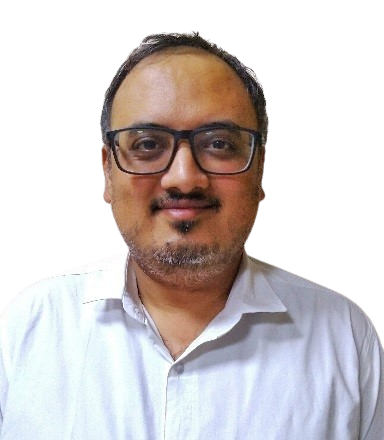
Scope
A microbiologist finds scope of employment in industries and research institutes other than options for higher education in the preferred field.
The following sectors require Microbiologists as professionals:
- Agriculture
- Biotechnology
- Pharmaceuticals
- Clinical and Diagnostic Laboratory
- Forensic Science
- Water Treatment Plant
- Food and Dairy Industry
- Research Labs
- Environmental Monitoring
- Biofertilizer and Agri based Products
- Academic School, UG and PG Level
- Marketing of Scientific Consumables, Equipments etc.
- Self-employed / Entrepreneur
Research and Publication
Dr. Krishna Joshi
List of Publications:
- Screening and Isolation of Plant Growth-Promoting Bacteria from Forest and Coastal Regions of Saurashtra, Gujarat (2021). Biosc. Biotech.Res.Comm. 14(1). http://dx.doi.org/10.21786/bbrc/14.1/58
- Study of Micronutrients and Macronutrients in Soils of Coastal and Gir Forest Region of Saurashtra,Gujarat, Environment and Ecology 39 (2) : 473—481, April—June 2021 ISSN 0970-0420.
- Effect of Growth-promoting Bacterial Consortia on Overall Growth of Tomato Plants, Appl Biochem Microbiol 59, 511–521 (2023). https://doi.org/10.1134/S0003683823040105
- Characterization of Plant Growth-Promoting Activity of Bacteria Isolated from Forest and Coastal Regions of Saurashtra, Gujarat, India, Biosc. Biotech.Res.Comm.2022; 15(1). http://dx.doi.org/10.21786/bbrc//15.1.22
- Amelioration of growth of maize (Zea mays L.) seedling using plant growth promoting nbacteria. Plant Science Today, 11(2). (Original work published April 1, 2024) https://doi.org/10.14719/pst.3223
Dr. Rohan Pandya
List of Publications:
- Larvicidal proficiency of volatile compounds present in Commiphora wightii gum extract against Aedes aegypti (Linnaeus, 1762), Frontiers in Plant Science, 2023 https://www.frontiersin.org/journals/plant-science/articles/10.3389/fpls.2023.1220339/full
- A Comparative Analysis of the Physico-Chemical Properties of Pectin Isolated from the Peels of Seven Different Citrus Fruits, Gels, 2023 https://www.mdpi.com/2310-2861/9/11/908
- Anti-proliferative activity of surfactins on human cancer cells and their potential use in therapeutics, Peptides, 2022 https://www.sciencedirect.com/science/article/abs/pii/S0196978122001024?via%3Dihub
- Characterization of Bioactive Metabolites from Marine Macroalgae Collected from Veraval Coast of Gujarat, International Journal of Pharmaceutical Sciences and Research, 2022 https://ijpsr.com/bft-article/characterization-of-bioactive-metabolites-from-marine-macroalgae-collected-from-veraval-coast-of-gujarat/
- Physiological Functions of Phenolic Compounds in Plant Defense System, In Intech open - Phenolic compound, 2022 https://www.intechopen.com/chapters/79458
- A comparative account on biodiesel production from forest seeds, In Biofuel from Microbes and Plants Green Energy Alternative, 2022 https://www.taylorfrancis.com/chapters/edit/10.1201/9780429262975-5/comparative-account-biodiesel-production-forest-seeds-jigna-tank-rohan-pandya
- "Conference proceeding-Effect of spermine and putrescine on germination and growth of Vigna radiate (L.) R. Wilczek seeds, SSRN, 2020. https://papers.ssrn.com/sol3/papers.cfm?abstract_id=3585124
- Alkaloids and Phenols Accumulation in Growing Leaf Cells of Gymnospora Montana (Roth) Benth. Biochemical and Cellular Archives, 2019. https://connectjournals.com/pages/articledetails/toc031194
- Foldscope: A primary tool for detection of bioactive compounds in plant cells, In Foldscope and its application, 2019 https://www.researchgate.net/profile/Arun-Dev-Sharma/publication/338884371_Foldscope_and_its _ Applications /links/5e310c9692851c7f7f08cd0a/Foldscope-and-its-Applications.pdf
List of Projects undertaken
- Empowering Youth for Undertaking Value Added Innovative Translational Research (EYUVA) funded by Biotechnology Industry Research Assistance Council (BIRAC), Department of Biotechnology (DBT), Government of India
- "Development of quality biofertilizer using cow dung: Metagenomic studies of Gir and Kankrej breed" funded by Indian Knowledge System Division, Ministry of Education, Government of India
- Biochemical and Molecular Studies of Agarase from Marine Bacteria Isolated from Saurashtra Coast, India funded by Atmiya University, Rajkot
- Preparation of natural polymer based formulations funded by Atal Incubation Centre, Gujarat Technological University
Dr. Abhijeet S. Joshi
List of Publications:
- Indian patent on “Skin Microbiome Analyzer Device”
- Quantification of Metagenomic DNA. In Methods and Protocols in Food Science. Springer US. 2024; 237–241.https://doi.org/10.1007/978-1-
0716-4180-4_29 - Changes of microbiome in response to supplements with silver nanoparticles in cotton rhizosphere. J Basic Microbiol. 2023; 63: 1451–1463. https://doi.org/10.1002/jobm.202300275
- Growth Promoting Impact of Biosynthesised Silver Nanoparticles (AgNPs) on Gossypium hirsutum and Vigna radiata, Proceedings of the National Conference on Innovations in Biological Sciences (NCIBS) https://papers.ssrn.com/sol3/papers.cfm?abstract_id=3582387
- Complete genome sequence of plant growth promoting Pseudomonas aeruginosa AJ D 2 an isolate from monocropic cotton rhizosphere, Genomics, Volume 112, Issue 2, 2020, 1318. https://doi.org/10.1016/j.ygeno.2019.07.022
- Antagonistic potential of silver nanoparticles with ectorhizospheric Pseudomonas species of Bt cotton, JETIR, Volume 5, Issue 112, 2018, 649-664. https://www.jetir.org/papers/JETIR1812493.pdf
- Metabolic Diversity of Rhizospheric Pseudomonas species of Bt Cotton Plant, J Pure Appl Microbiol., 2018; 12(4):1929-1937. http://dx.doi.org/10.22207/JPAM.12.4.29
- Metagenomic Insights into Ecosystems and Environmental Dynamics- Genomic Intelligence: Metagenomics and Artificial Intelligence, 2024. https://www.taylorfrancis.com/chapters/edit/10.1201/9781003570233-3/techniques-metagenomic-data-collection-sequencing-abhijeet-joshi-alla-devivaraprasad-reddy-roshan-maroti-shinde-somesh-mehra-sheetanshu-gupta?context=ubx&refId=cb396c32-5f6d-4043-9ab5-1ab8c7f1e73b
- Techniques for Metagenomic Data Collection and Sequencing. https://www.taylorfrancis.com/chapters/edit/10.1201/9781003570233-11/metagenomic-insights-ecosystems-environmental-dynamics-abhijeet-joshi-sheetanshu-gupta-sugandha-mishra-dhirendra-kumar?context=ubx&refId=06824e17-be27-4ccf-bea4-cca2fca33e48
List of Projects undertaken
- Development of quality biofertilizer using cow dung: Metagenomic studies of Gir and Kankrej breed funded by Indian Knowledge System Division, Ministry of Education, Government of India
- Diabetic kit for sugar level monitoring in diabetic patients funded by Student Startup and Innovation Policy (SSIP 2.0) , Government of Gujarat
- Formulation of Plant Growth Promoter on food waste funded by Student Startup and Innovation Policy (SSIP 2.0) , Government of Gujarat
- Kit for sugar detection in urine sample of diabetic patients funded by Gujarat State Biotechnology Mission, Govt. of Gujarat.
Dr. Mousumi Das
List of Publications:
- Design Patent published and granted “Airborne Microbial Sampler”
- In vitro Study of Antagonistic Activity, Extraction and Optimization of Amylase Enzyme from Trichoderma Harzianum Against Selected Soil borne Fungal Isolates. Science and Technology Journal. 2020, 10(1):16-28. ISSN: 2321-3388.
- Understanding Plant Growth Promoting Rhizobacteria(PGPR) interactions for inducing plant defences; In a book: Novel Approaches In Science and Pharma Fraternity. P.K . Publishers and Distributors, New Delhi, India. ISBN: 978-93-92239-66-3:Pp:12-27
- Microbial Biomaterials and Their Industrial Applications. In a Book Entitled Microbial products for future industrialization. Ediotors : Angana Sarkar, Idris Adewale Ahmed. 2023, 10.1007/978-981-99-1737-2_15.
- Prevalence of Antimicrobial Resistance in Saurashtra, Gujarat and Implications Toward Sustainable Healthcare. Indian J Microbiol. 2024. https://doi.org/10.1007/s12088-024-01209-6
- Actinomycetes as a Possible Source of Bioremediation of Heavy Metal Cadmium from Contaminated Soil. Current World Environment Journal. 2024, 19I1). ISSN:0973-4929
- Screening, Production and Characterization of Potential Lignocellulolytic Actinomycetes from Agricultural Field. Journal of Pure and Applied Microbiology. 2024, 18 (2).1336-1346."
- Effect of Siderophore Producing Cadmium Tolerant Streptomyces pactum OR958669 on Plant Growth of Groundnut (Arachis hypogaea L.). Current Agriculture Research Journal. 2024, 12(1).485-495.
List of Projects undertaken
- Wrap Eat - SSIP, Atmiya University, Rajkot funded by KCST, Gujarat
- Agronomics - SSIP, Atmiya University, Rajkot funded by KCST, Gujarat
- IKS - BJS1_M27- Vedic Science a Domestic Approach Solving Water pollution - A Menace funded by IKS, AICTE, Govt of India, MoE
- IKS- BJS1_M27- Demystifying the drinking water microflora by Copper vessel storage and Agnihotra ash treatment funded by IKS, AICTE, Govt of India, MoE
- Atal FDP Grant of 1.0 lakh for conducting Six day Online FDP in the year 2025 by ATAL, AICTE, Govt of India
Dr. Chitra Bhattacharya
List of Publications:
- Indian Patent on "Image Processing Based Approach Integrated with Deep Learning to Accurately Detect the Root Cause for Disease and Factors Responsible for Decrease In Crop Yield Application No.202211040082 A"
- Design Patent Published on “Nanoparticle Synthesis Apparatus for Liquid Waste Treatment”
- Exploration of Saurashtra Soil PGPR Strain and its Attributes in Crop Productivity by Pot Plant Study Eco. Env. & Cons. 29 (May Suppl. Issue) : 2023; pp. (S191-S196)
- Isolation and identification of PGPR traits from soil samples of the saurashtra region. Indian J.Sci.Res. 13 (2): 13-21, 2023
- Book chapter “Design and Operation of New Microbial Product Bioprocessing System” Springer (ISBN -978-981-99-1737-2)"
- Book chapter "Microbial Biomaterials and Their Industrial Applications Springer(ISBN - 978-981-99-1737-2)"
- Book chapter "Understanding Plant-Plant Growth Promoting Rhizobacteria (PGPR) Interactions for Inducing Plant Defenses (ISBN- 978-93-92239-66-3), P.K. Publishers & Distributors"
- Book chapter "Application of Microbial Technology for Waste Removal Springer Nature Singapore Pte Ltd (ISBN- 978-981-16-3840-4)"
- Book chapter "Effect of Ageing on Biochemical Parameters in Sesame Seed At LAP LAMBERT Academic Publishing, Germany (ISBN- 978-3-659-27112-0)"
- Screening of Bacillus sp. (OQ654027) Mediated Seed Bio-Priming Enhance Plant-Growth-Promotion for Sustainable Crop Production of Groundnut and Chickpea, Current Agriculture Research Journal, Vol. 11, No. (3) 2023, pg.1-18. (UGC approved/ WoS) ISSN: 2347-4688
List of Projects undertaken
- Development of Bacto-fungal Consortium and Study of Biological Attributes in Organic Farming Practice funded by SEED Money project, Atmiya University, Rajkot
- Formulation of Melishield Fragment Mosquito Repellent. funded by SSIP (State-Level Student Start up Innovation Policy)
- Melishield Mosquito Repellent funded by E-Yuva, DBT, BIRAC
- Formulation of Herbal Mosquito Repellent funded by E-Yuva, DBT, BIRAC
- State Level 7 Days Short Term Training Program on "Enzyme Assay & Kinetics" Funded by DST and Gujarat State Biotechnology Mission (GSBTM)
Dr. Bhargav Waghela
List of Publication:
- Identification of novel exonic variants contributing to hereditary breast and ovarian cancer in west Indian population. Gene, 2023.
- Insights of Endocytosis Signaling in Health and Disease. International Journal of Molecular Sciences, 2023.
- Upregulation of NOX-2 and Nrf-2 promotes 5-Fluorouracil-resistance of human colon carcinoma (HCT-116) cells. Biochemistry (Moscow), 2021.
- AGE-RAGE synergy influences programmed cell death signaling to promote cancer. Molecular and Cellular Biochemistry, 2020.
- Molecular insights of NADPH oxidases and its pathological consequences. Cell Biochemistry and Function, 2020.
- Inhibition of NADPH Oxidase activity augments 5-fluorouracil mediated cell death in human colon carcinoma HCT-116 cells. Int. J. Adv. Res. 8(07), 865-874, 2020.
- Curcumin Conjugated with PLGA Potentiates Sustainability, Anti-Proliferative Activity and Apoptosis in Human Colon Carcinoma Cells. PloS One, 10 (2), e0117526, 2015. (Top 25% Most Cited articles of 2015 in Plos One)
- RP‐HPLC method development, validation, and its pharmacokinetic applicability in preclinical evaluation of rhein treated with novel diacerein eutectics. Biomedical Chromatography, 2022.
- Molecular Diagnosis of Muscular Dystrophy Patients in Western Indian Population: A Comprehensive Mutation Analysis Using Amplicon Sequencing. Frontiers in genetics, 2021.
- Cell-Penetrable Peptide-Conjugated FADD Induces Apoptosis and Regulates Inflammatory Signaling in Cancer Cells. Int. J. Mol. Sci., 2020.
- Surface modified PAMAM dendrimers with gallic acid inhibit, cell proliferation, cell migration and inflammatory response to augment apoptotic cell death in human colon carcinoma cells. Journal of Biomolecular Structure and Dynamics, 2020.
- Evaluation of antimitotic activity of herbal extracts using plant‐based model systems and their cytotoxic potential against human colon carcinoma cells. Journal of Cancer Research and Therapeutics, 2021.
- Leishmania donovani adenylate kinase 2a prevents ATP-mediated cell cytolysis in macrophages. Parasitology International, 2019.
- Silibinin, A Natural Blend In Polytherapy Formulation For Targeting Cd44v6 Expressing Colon Cancer Stem Cells. Scientific Reports, 2018.
- Synthesis, characterization and biological application of 5-quinoline 1, 3, 5-trisubstituted pyrazole based platinum (ii) complexes. MedChemComm. 2018.
- Design, synthesis, pharmacological evaluation and DNA interaction studies of binuclear Pt (II) complexes with pyrazolo [1, 5‐a] pyrimidine scaffold. Applied Organometallic Chemistry, 2018.
- Design, synthesis, MTT assay, DNA interaction studies of platinum(II) complexes. Journal of Biomolecular Structure & Dynamics, 1-18, 2017.
- Quercetin Protects Necrotic Insult and Promotes Apoptosis by Attenuating the Expression of RAGE and its ligand HMGB1 in Human Breast Adenocarcinoma cells. IUBMB Life, 67 (5), 361-373, 2015.
- Advanced Glycation End Products mediated oxidative stress and regulated cell death signalling in cancer. Handbook of Oxidative Stress and Cancer, 2020.
- Effect of Sucrose Concentration on In-vitro growth of Mustard Seedlings. Phytotechnology: Emerging Trends, Chapter-33, 2009.
Dr. Nidhi Saxena
List of Publication:
- Characterization and probiotic assessment of Lactobacillus isolates from Saurashtra, Gujarat, India. Applied Biochemistry and Microbiology. 2025, 61(2): 01-10. https://doi.org/10.1134/S000368382460698X
- Role of dietary natural food as a therapeutic drug to prevent lung cancer: Phytochemicals as an Epigenetic Modifier in Cancer Prevention, Chapter-4, IOP Publishing, 2023, 4-1 to 4-39. https://dx.doi.org/10.1088/978-0-7503-5252-9ch4
- Bacterial Decolorization of Reactive Red: Strategic Bioremediation of Textile Dye. International Journal of Current Microbiology and Applied Science. 2018, 7(9): 147-156. https://doi.org/10.20546/ijcmas.2018.709.019
- Factors affecting in vitro propagation of bacopa monniera, The Global Journal of Multidisciplinary Studies, 2016 (5).
- Conventional method for saponin extraction from chlorophytum borivilianum Sant. Et Fernand, Global J Res. Med. Plants & Indigen. Med., 2014, Volume 3(2): 33–39
List of Projects undertaken
- Mushroom Cultivation (Mushroom source of high protein)- SSIP, Atmiya University, Rajkot funded by KCST, Gujarat
- Influencing Gut Microbiota to reduce Malnutrition in Gujarat region funded by SEED Money project, Atmiya University, Rajkot
Dr. Shivani Tank
List of Publication:
- Appraisal of Organic and Inorganic Nanomaterials in Cellular Microenvironment ISBN: 9780367271824,0367271826"
- Development and Characterisation of Ayurvedic Polyherbal Formulation for Diabetic Wound Healing: A Comprehensive Study on Decoction, Phytochemical Analysis, and Topical Application. J Biomed Eng Res. 2023. 7: 1-17
List of Projects undertaken
- Development and characterization of ayurvedic polyherbal formulation for diabetic wound healing funded by SEED Money project, Atmiya University, Rajkot
Dr. Hitarth B. Bhatt
List of Publication:
- Extremozymes: characteristics, structure, protein engineering and applications. Frontiers in Microbiology. 2024 May 8;15:1423463. https://doi.org/10.3389/fmicb.2024.1423463
- Solvent tolerant enzymes in Extremophiles: Adaptations and Applications. International Journal of Biological Macromolecules. 2023. https://doi.org/10.1016/j.ijbiomac.2023.124051
- Diversity of Cultivable Bacteria in A Saline Desert ofLittle Rann of Kutch, India: A Phylogenetic Perspective. Frontiers in Marine Science. 2022. 9:769043. https://doi.org/10.3389/fmars.2022.769043
- Phenotypic characteristics, phylogenetic analysis and characterization of alkaline proteases of marine bacteria Geomicrobium halophilum, Oceanobacillus oncorhynchi, and Oceanobacillus khimchii. Biologia. 2022. https://doi.org/10.1007/s11756-022-01095-7
- Cloning, Expression and Structural Elucidation of a Biotechnologically Potential Alkaline Serine Protease from A Newly Isolated Haloalkaliphilic Bacillus lehensis JO-26. Frontiers in Microbiology. June 3 2020; 11: 941. https://doi.org/10.3389/fmicb.2020.00941
- Phylogeny, novel bacterial lineage and enzymatic potential of haloalkaliphilic bacteria from the saline coastal desert of Little Rann of Kutch, Gujarat, India. 3 Biotech. 2018 Jan 1;8(1):53. https://doi.org/10.1007/s13205-017-1075-0
- Desertibacillus haloalkaliphilus gen. nov., sp. nov., isolated from a saline desert. International journal of systematic and evolutionary microbiology. Sep 21 2017;67(11):4435-42. https://doi.org/10.1099/ijsem.0.002310
- Cloning, heterologous expression and structural characterization of an alkaline serine protease from sea water haloalkaliphilic bacterium. Annals of microbiology. Mar 1 2015; 65 (1): 371- 81. https://doi.org/10.1007/s13213-014-0869-0
- Effect of Salt and pH on the Growth and Production of Alkaline Proteases From Haloalkaliphilic Bacteria Isolated From Saline Desert https://papers.ssrn.com/sol3/papers.cfm?abstract_id=3576594
- Production and demand of microbial oxidative enzymes worldwide. Microbial Oxidative Enzymes: Biotechnological Applications. Dec 31 2023: 467. https://www.degruyter.com/document/doi/10.1515/9783111062235-023/pdf?licenseType=restricted
- Desertibacillus, Bergey's Manual of Systematics of Archaea and Bacteria. 2022. https://onlinelibrary.wiley.com/doi/abs/10.1002/9781118960608.gbm01788
- Multifunctional properties of polysaccharides produced by halophilic bacteria and their new applications in biotechnology. Microbial Syntrophy-Mediated Eco-enterprising. 2022 https://www.sciencedirect.com/science/article/abs/pii/B9780323999007000146
- Adaptation strategies in halophilic bacteria. Extremophiles: From biology to Biotechnology. 2018 Feb. (CRC Press) https://www.taylorfrancis.com/chapters/edit/10.1201/9781315154695-7/adaptation-strategies-halophilic - bacteria-vikram-raval-hitarth-bhatt-satya-singh
- Phylogenetic and phenogram based diversity of haloalkaliphilic bacteria from the saline desert. Microbial Biotechnology: Technological Challenges and Developmental Trends. 2017 Mar 16:373. (CRC Press) https://www.taylorfrancis.com/chapters/edit/10.1201/b19978-24/phylogenetic-phenogram-based-diversity-haloalkaliphilic-bacteria-saline-desert-hitarth-bhatt-satya-singh
Dr. Vivek B. Pattani
List of Publication:
- Amelioration of growth of maize (Zea mays L.) seedling using plant growth promoting bacteria. Plant Science Today. 2024. 11(2). https://doi.org/10.14719/pst.3223
- Effect of Growth-promoting Bacterial Consortia on Overall Growth of Tomato Plants. Applied Biochemistry and Microbiology. 2023. 59(4), 511-521. https://doi.org/10.1134/S0003683823040105
- Characterization of Plant Growth-Promoting Activity of Bacteria Isolated from Forest and Coastal Regions of Saurashtra, Gujarat, India. Bioscience Biotechnology Research Communications. 2022. 15(1). http://dx.doi.org/10.21786/bbrc//15.1.22
- Screening and Isolation of Plant Growth-Promoting Bacteria from Forest and Coastal Regions of Saurashtra, Gujarat. Biosc. Biotech. Res. Comm., 2021. 14(1), 410-415. http://dx.doi.org/10.21786/bbrc/14.1/58
- Study of Micronutrients and Macronutrients in Soils of Coastal and Gir Forest Region of Saurashtra, Gujarat. Environment and Ecology. 2021. 39(2), 473-481. https://environmentandecology.com/wp-content/uploads/2024/08/MS26.pdf
- Study Of Culturable Microbial Counts And Its Relation With Various Soil Parameters Near Lalparilake, Rajkot. International Journal of Advanced Research. 2016. 4(9), 855-862. https://dx.doi.org/10.21474/IJAR01/1553
Dr. Jinesh Kaneriya
List of Publication:
- Effect of Growth-promoting Bacterial Consortia on Overall Growth of Tomato Plants. Appl Biochem Microbiol 59, 511–521 (2023). https://doi.org/10.1134/S0003683823040105
- Amelioration of growth of maize (Zea mays L.) seedling using plant growth promoting bacteria. Plant Science Today, 2024. 11(2). https://doi.org/10.14719/pst.3223
- Screening and Isolation of Plant Growth-Promoting Bacteria from Forest and Coastal Regions of Saurashtra, Gujarat. Biosc. Biotech.Res.Comm. 2021;14(1). http://dx.doi.org/10.21786/bbrc/14.1/58
- Characterization of Plant Growth-Promoting Activity of Bacteria Isolated from Forest and Coastal Regions of Saurashtra, Gujarat, India. Biosc. Biotech. Res. Comm. 2022; 15(1). http://dx.doi.org/10.21786/bbrc//15.1.22
- Effects of Ultra-Processed Food on Human Gut Microbiota. Journal of Medicine Care and Health Review 1(4). https://doi.org/10.61615/JMCHR/2024/NOV027141102
- Study of Micronutrients and Macronutrients in Soils of Coastal and Gir Forest Region of Saurashtra, Gujarat, Environment and Ecology 39 (2) : 473—481, April—June 2021 ISSN 0970-0420
Dr. Vaishali Majithiya
List of Publication:
- Microorganisms: An essential source of industrial proteases. In Recent Advances in Microbiology. Editor; Kripamoy Chakraborty. Shriyanshi Prakashan. 2023.
- Diversity, Distribution and Biotechnological Potential of Marine Actinobacteria. In Current Trends in Marine Biology. Editors: Vala A.K., Kumar S.K. Cambridge Scholar publications. 2022. UK (pp.184-209).
- Actinobacteria associated with marine invertebrates: Diversity and potential application. In “Actinobacteria” Editor; Hozzein W.N. Intech open. 2022. pp 23-40
- Genetic and Physiological Diversity of Marine Actinobacteria from the Okha Coast, Gujarat, India. Geomicrobiology Journal. 2023, 1-15.
- Isolation and characterization of marine actinobacteria associated with the seaweeds, Codium dwarkense and Sargassum cinereum, collected from the Veraval coastline, Gujarat, India. Journal of Marine Biological Association of India. 2022, 64(1), 33-37.
- Media optimization and purification of alpha amylase from haloalkaliphilic actinobacteria associated with seaweed. Proceedings of International Science Symposium 2022.
- Screening and optimization of Amylase producing actinobacteria associated with sea weed Dictyopteris sp. Proceedings of International Science Symposium 2021.
- Isolation and Screening of Extracellular Enzymes Producing Actinobacteria Associated With Sea Weed (February 29, 2020). Proceedings of the National Conference on Innovations in Biological Sciences (NCIBS) 2020.
Ms. Radhika Joshi
List of Publication:
- Changes of microbiome in response to supplements with silver nanoparticles in cotton rhizosphere. J Basic Microbiol. 2023; 63: 1451–1463. https://doi.org/10.1002/jobm.202300275
Event
| Sr. No. | Event Name | Event Date | Photo Gallery |
|---|---|---|---|
| 1 | National conference - “Environmental Microbiology and Regulatory Aspects” | 23-02-2024 | View |
Department Infrastructure
Classrooms
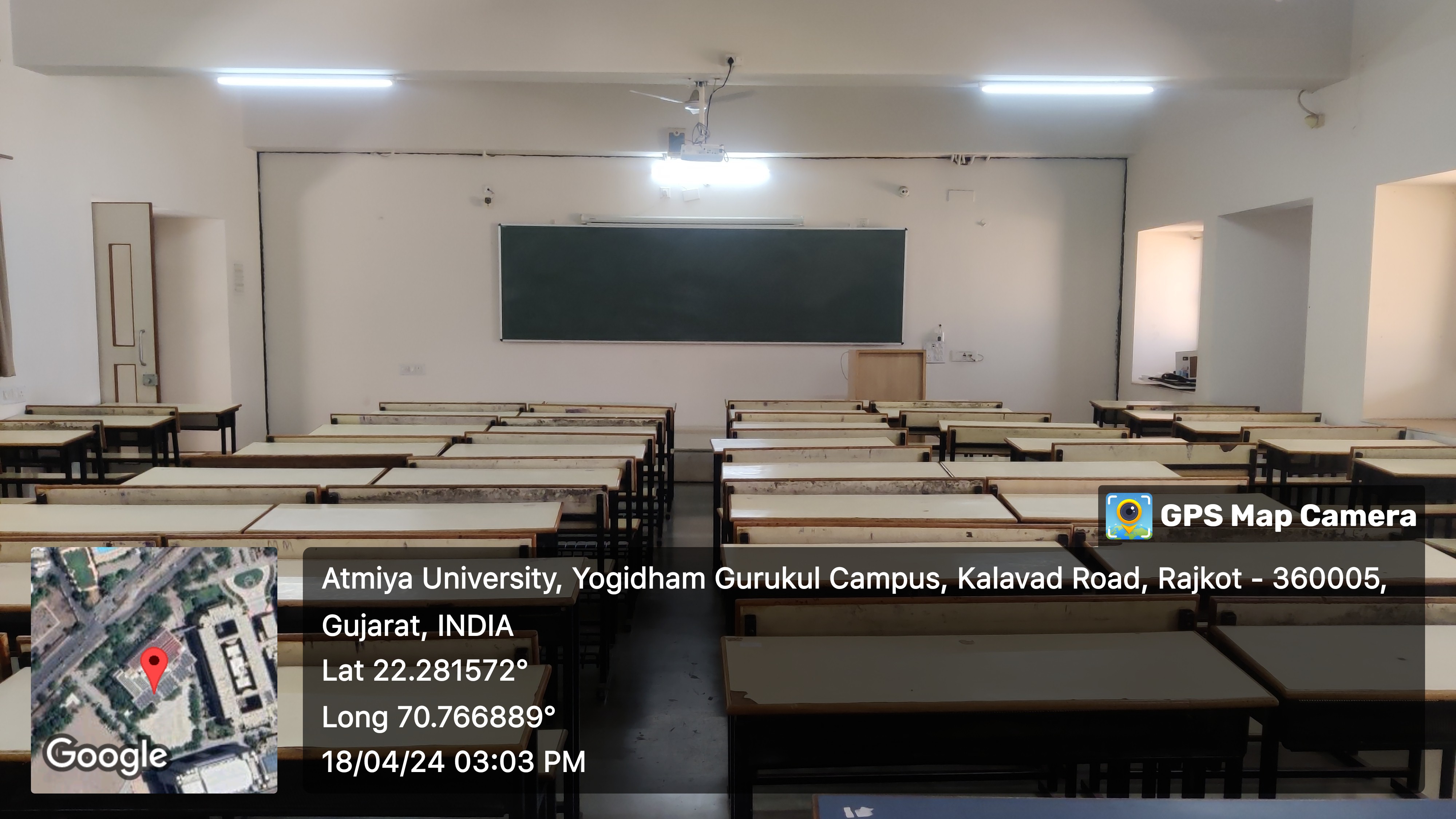
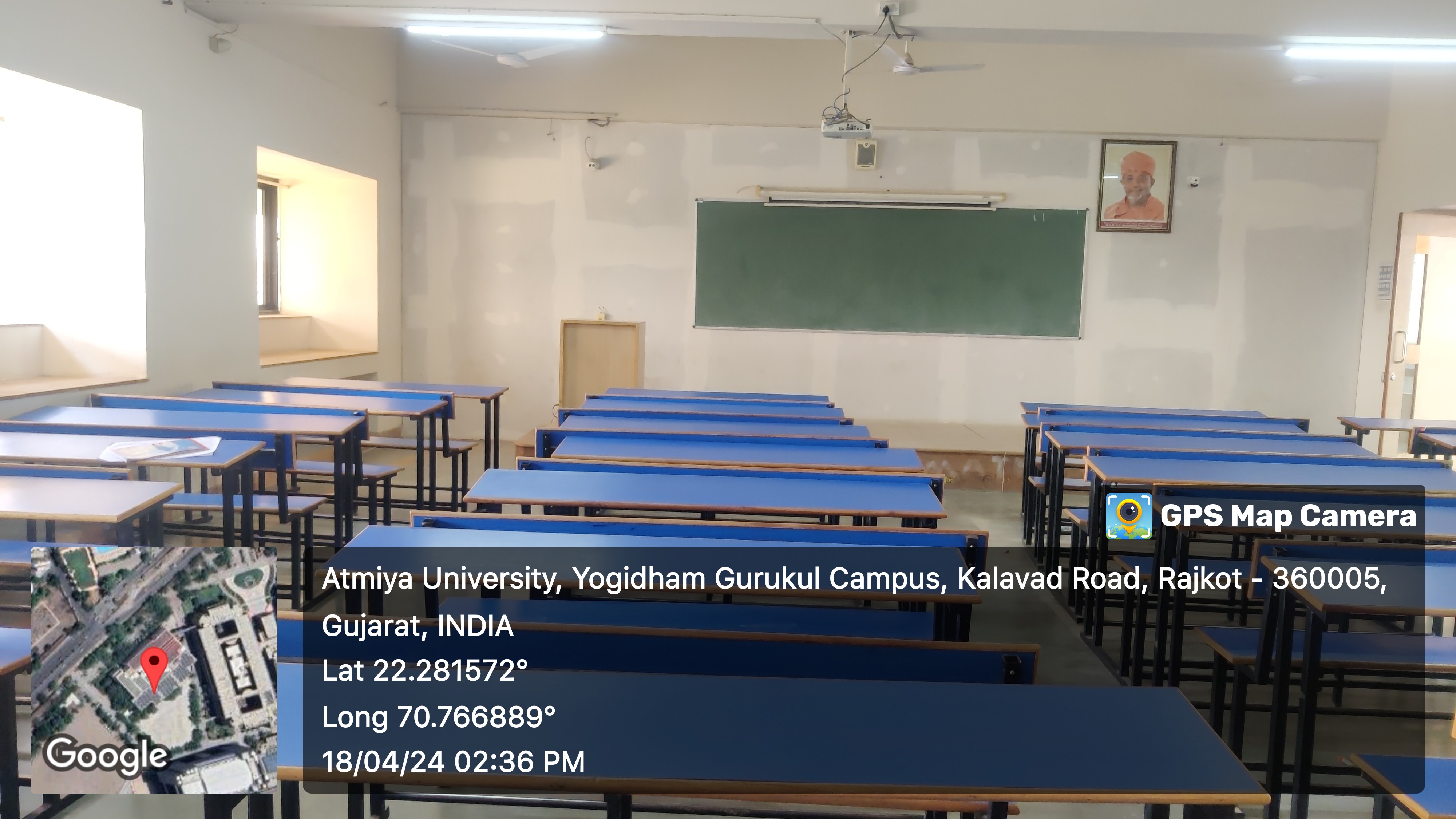
.jpg)
.jpg)
Microbiology Labs
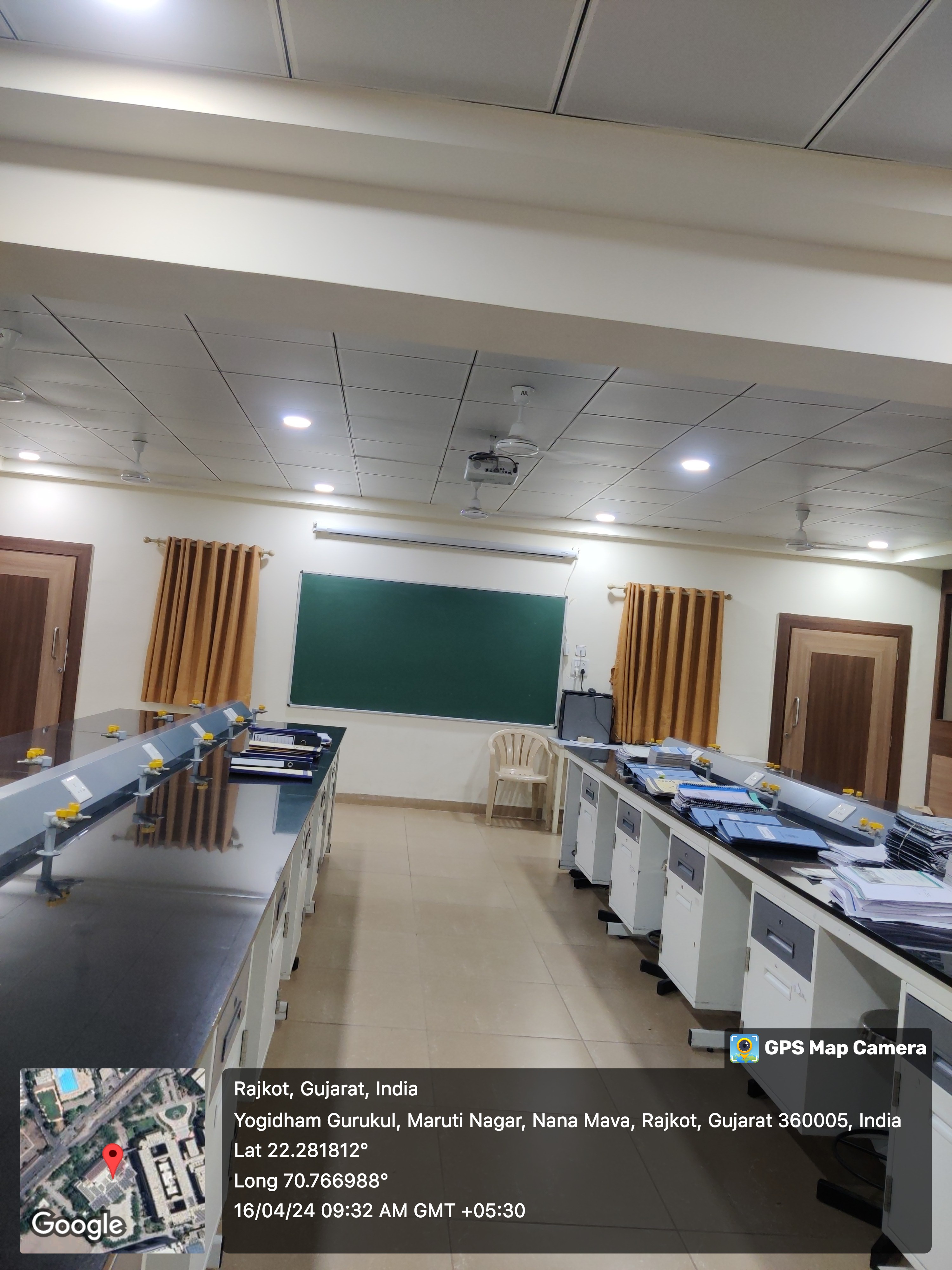
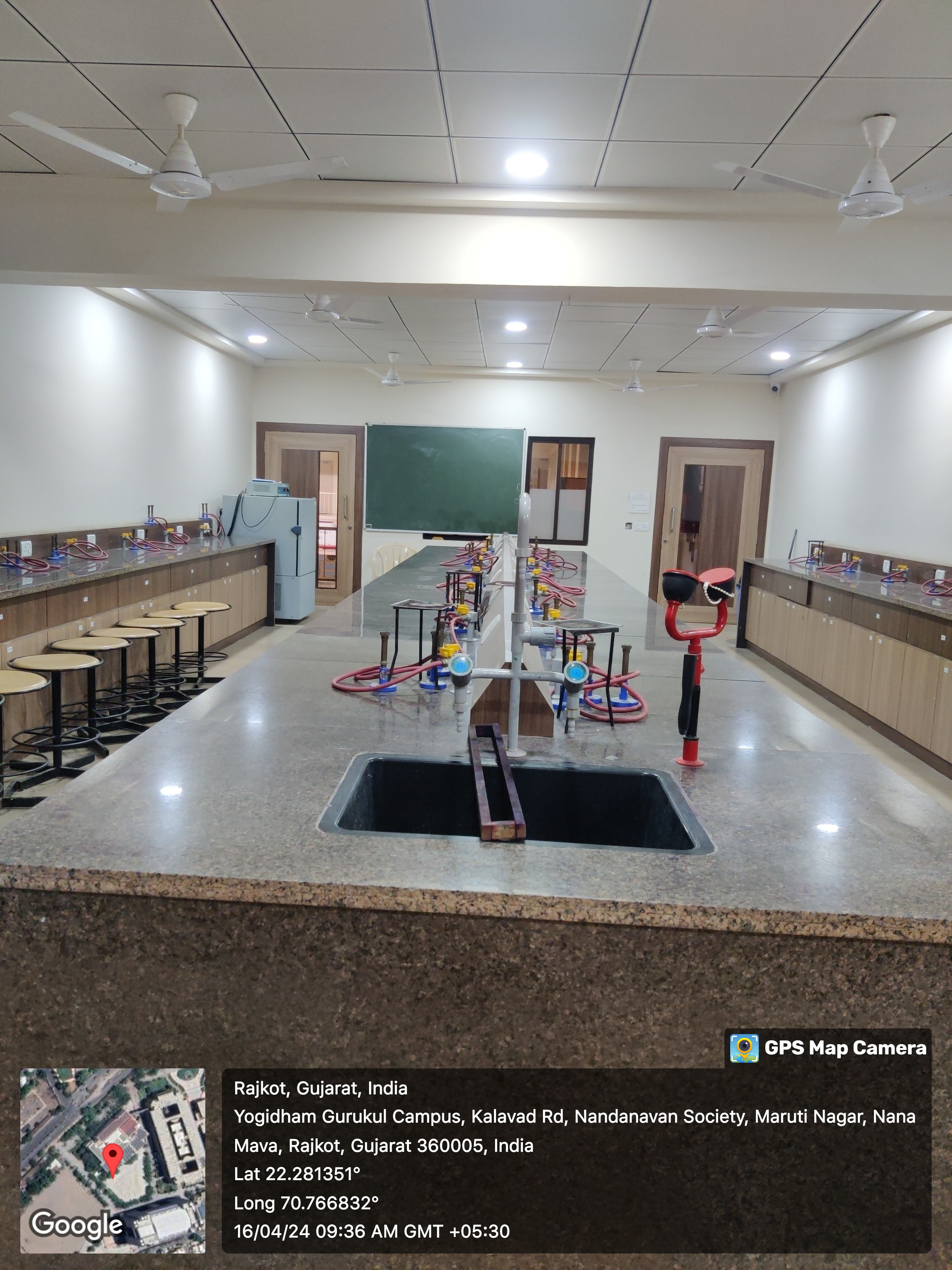
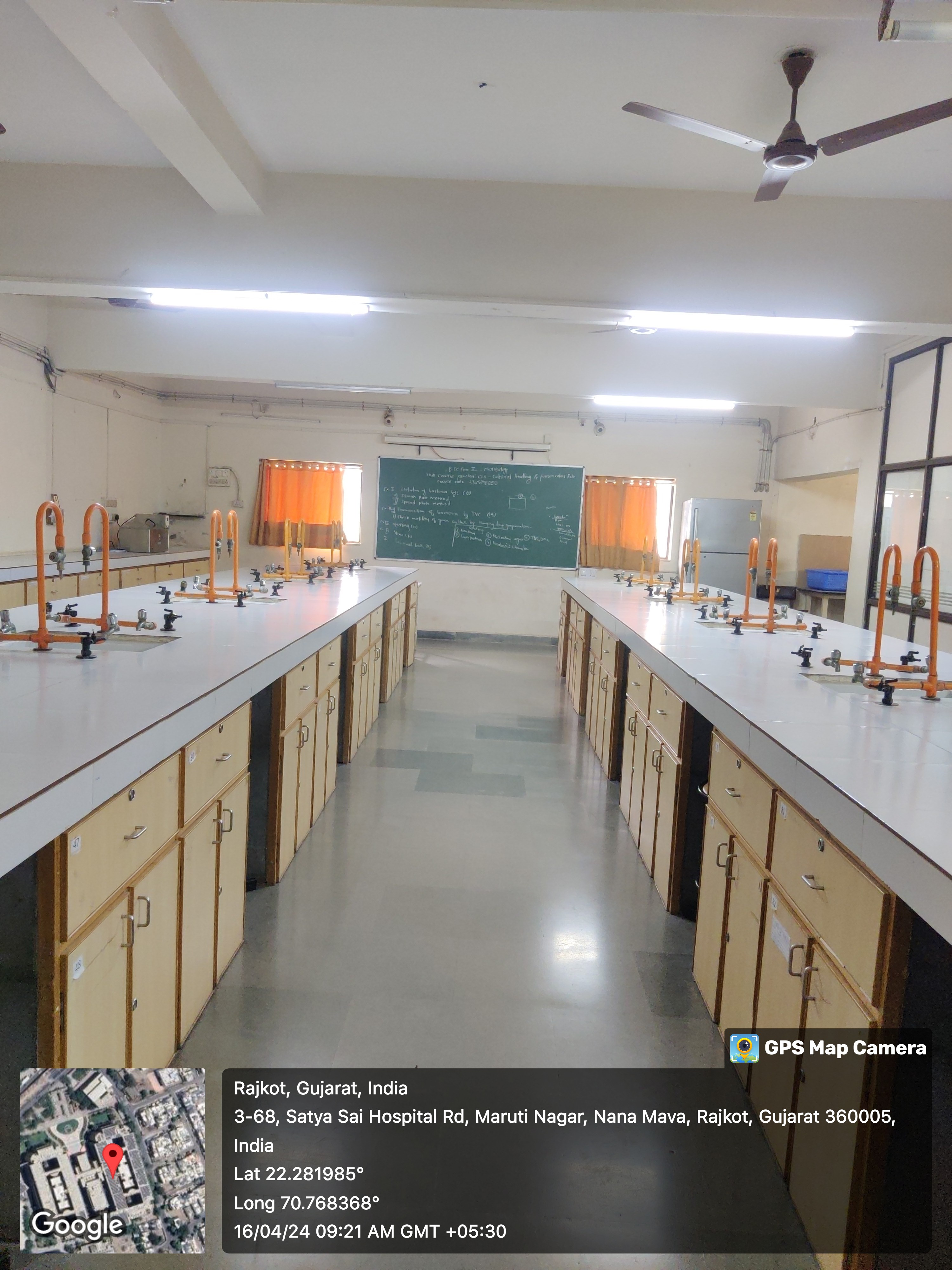
.jpg)
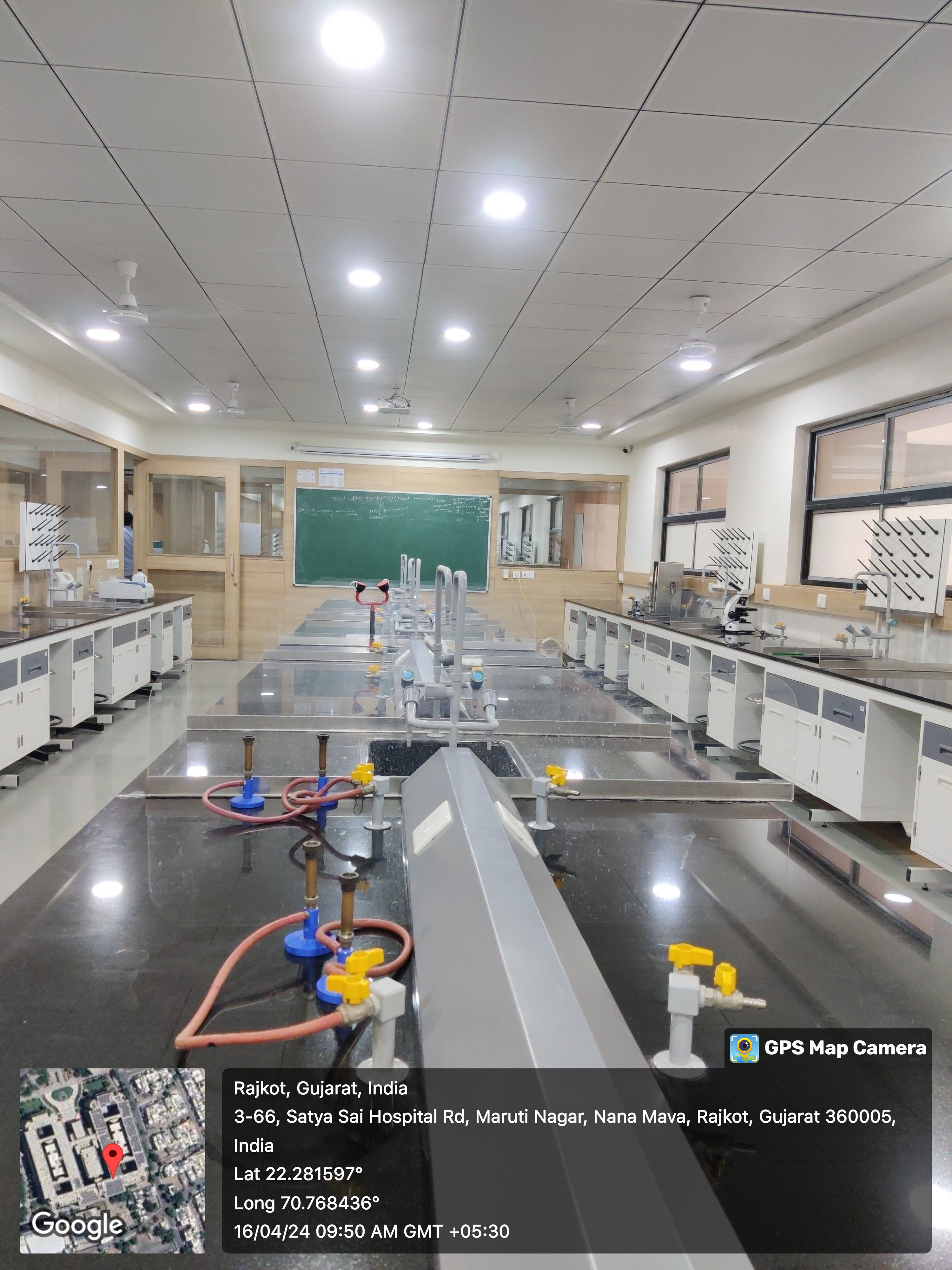
.jpg)

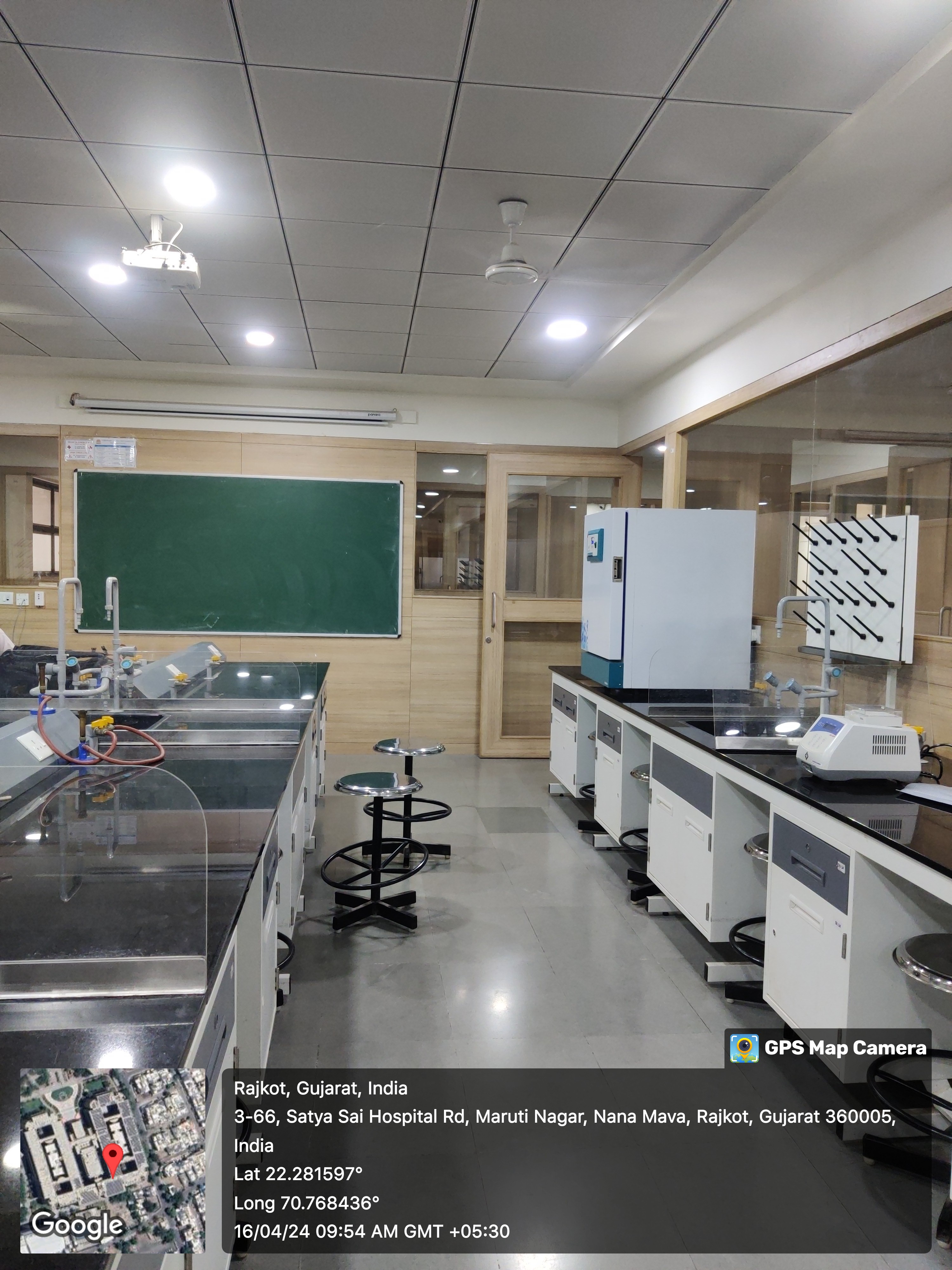
Placement
Achievements
Students achievement:
